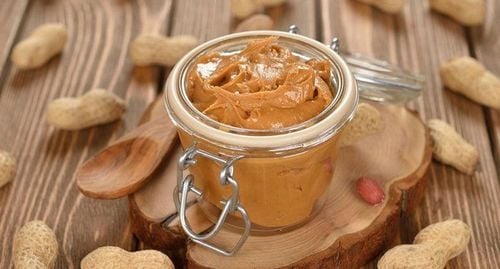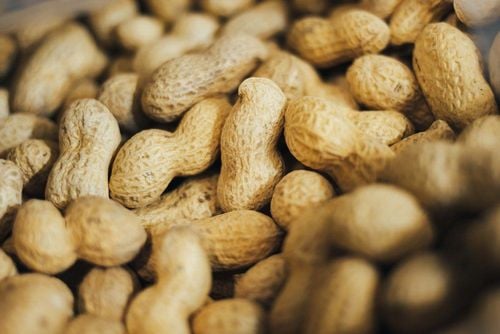Acid reflux, the uncomfortable backflow of stomach acid into your esophagus, is often triggered by your eating habits. Eating the wrong foods will undoubtedly make you feel bloated or experience acid reflux. Certain foods are known to trigger acid reflux more than others, including peanut butter. Learn more about acid reflux and peanut butter below.
1. The Relationship Between Acid Reflux and Peanut Butter
Acid reflux occurs when stomach acid flows back into your esophagus. The most common symptoms include a burning sensation in the chest (heartburn) and a sour taste at the back of your mouth.
Your diet can significantly impact your acid reflux symptoms. Just as everyone experiences acid reflux differently, food triggers may vary between individuals.
Peanut butter is not generally considered a trigger for acid reflux, but it can affect some people to varying degrees. Despite its undeniable health benefits, peanut butter is a high-fat food. Such foods can exacerbate acid reflux symptoms.
Peanut butter contains a high amount of unsaturated fats—the "good" fats that are often recommended. Unsaturated fats help reduce your cholesterol levels, potentially lowering your risk of metabolic cardiovascular diseases.
It is also a rich source of vitamins and minerals. For instance, it contains manganese, which activates enzymes designed to detoxify your body. It also breaks down nutrients for your body to absorb and aids in tissue development.
Additionally, peanut butter is high in fiber and protein. Fiber promotes digestive health, while protein helps build and repair muscle tissue.
What research says
While the relationship between acid reflux and diet has been extensively studied, there is limited research on specific foods, including peanut butter. It remains unclear whether eating peanut butter affects your symptoms.
Meanwhile, institutions such as the University of Pittsburgh Medical Center list peanut butter as an acceptable option for individuals with acid reflux. Opt for natural, unsweetened peanut butter for better results.
Cedars-Sinai Medical Center recommends smooth peanut butter as the best choice. Avoid chunky peanut butter, as it is more likely to cause acid reflux symptoms.
Smooth peanut butter is often part of a soft diet for the esophagus. Doctors may suggest this diet if you have esophagitis or inflammation of the esophagus. Acid reflux is a common symptom of esophagitis.

Risks and warnings
Despite research, some individuals believe that peanut butter can worsen acid reflux. Consult your doctor about whether you should include peanut butter in your diet. It’s best to start with a small amount and gradually work up to a standard serving. A typical serving is about two tablespoons of peanut butter.
Other studies discuss a potential link between eosinophilic esophagitis and food allergens. This condition causes dysfunction in the esophagus.
This issue may be mitigated by following a diet that eliminates six major food allergens. Approximately 70% of adults with this condition have seen improvement by avoiding certain foods, including peanuts. These foods include:
- Milk
- Wheat
- Egg
- Soybeans
- Nuts
- Fish and shellfish
A diet-based plan to manage acid reflux can help reduce or eliminate your symptoms.
2. Surprising side effects of eating peanut butter, according to science
2.1 Acid reflux or heartburn
Peanuts are higher in fat than some other nuts, which means they irritate the lower esophageal sphincter (LES), a flap-like muscle at the end of your esophagus. Fatty foods can cause the LES to relax—but not in a good way. You need a healthy LES to seal off the lower esophagus and protect it from stomach acid. When fatty foods cause the LES to relax, stomach acid can rise into the esophagus, leading to acid reflux and heartburn. However, as long as you consume small servings (about two tablespoons) of peanut butter throughout the week, you can completely avoid this issue.
2.2 Difficulty swallowing
Aside from eating too much peanut butter in one spoonful and feeling like you might choke without a glass of water in hand, there’s another reason your esophagus might struggle to function normally. You might have a mild peanut allergy without realizing it, which can lead to eosinophilic esophagitis (EoE). According to the Mayo Clinic, EoE is a chronic immune system disorder that can cause inflammation of the esophageal tissue and make swallowing difficult.
Food allergies, along with risk factors like environmental allergies and asthma, can contribute to EoE. Additionally, repeated acid reflux episodes can worsen esophageal inflammation. If you frequently experience acid reflux or feel a choking sensation after eating peanut butter, consult a gastroenterologist to evaluate allergic reactions and consider endoscopic intervention.
2.3 Inflammation
Peanuts contain omega-6 fatty acids, which can promote inflammation in the body if consumed excessively. According to Dr. Sydney Greene, MS, RD: "While eating peanut butter in moderation is safe and even beneficial, the problem with omega-6 fatty acids is that most people consume too much of them compared to omega-3 fatty acids. When the ratio of omega-6 fatty acids to omega-3 fatty acids is more inclined towards omega-6 fatty acids, this imbalance can promote inflammatory processes in the body. "
Omega-3 fatty acids, on the other hand, reduce inflammation. It’s essential to consume foods rich in omega-3s (e.g., walnuts, salmon, flaxseeds, oysters) to minimize inflammation. Chronic inflammation can negatively impact tissues and organs if not addressed.
2.4 Improve cardiovascular health
Since peanuts are rich in unsaturated fatty acids, they are a much better alternative to foods high in saturated fats (such as processed foods and red meat). Peanut oil is particularly rich in oleic acid—a type of acid believed to help maintain good cholesterol levels (HDL) and blood pressure, both of which are crucial for optimal heart health. This is why peanut butter is often used as a substitute for unhealthy fats in your diet. Therefore, choosing a tablespoon of peanut butter with one or two pieces of dark chocolate is much better than a full-fat ice cream sundae.
2.5 Weight gain
Peanut butter is high in calories, so consuming too much may lead to weight gain. Maintaining a daily intake of two tablespoons, which equals about 200 calories, is recommended.

3. Treatment of gastric reflux
If you don’t frequently experience acid reflux symptoms, you can let it resolve on its own without intervention. Over-the-counter medications, such as antacids, can also treat mild discomfort. However, you should not use antacids for more than 14 days. If your symptoms do not improve, consult a doctor.
More severe cases of acid reflux require treatment with both over-the-counter and prescription medications under a doctor’s supervision. Medications may include H2 receptor blockers and proton pump inhibitors. These medications, when combined, often provide longer-lasting relief than antacids.
In severe cases, surgery may be necessary to repair the lower esophageal sphincter.
Lifestyle changes can also help alleviate or reduce symptoms. Losing weight, exercising, and eating smaller meals with less irritating foods can decrease the frequency and severity of symptoms.
Currently, there is considerable debate about whether peanut butter has a negative or positive impact on acid reflux. However, if you enjoy peanut butter and wish to include it in your diet, you should:
- Gradually incorporate it into your meal plan.
- Start with small amounts of peanut butter.
- Be mindful of any other foods in your diet that may
- trigger acid reflux.
If your symptoms persist, schedule an appointment with your doctor to determine the best dietary and treatment plan for you.
If you need consultation and examination at Vinmec Hospital healthcare system nationwide, please make an appointment on the website (vinmec.com).
Please dial HOTLINE for more information or register for an appointment HERE. Download MyVinmec app to make appointments faster and to manage your bookings easily.













